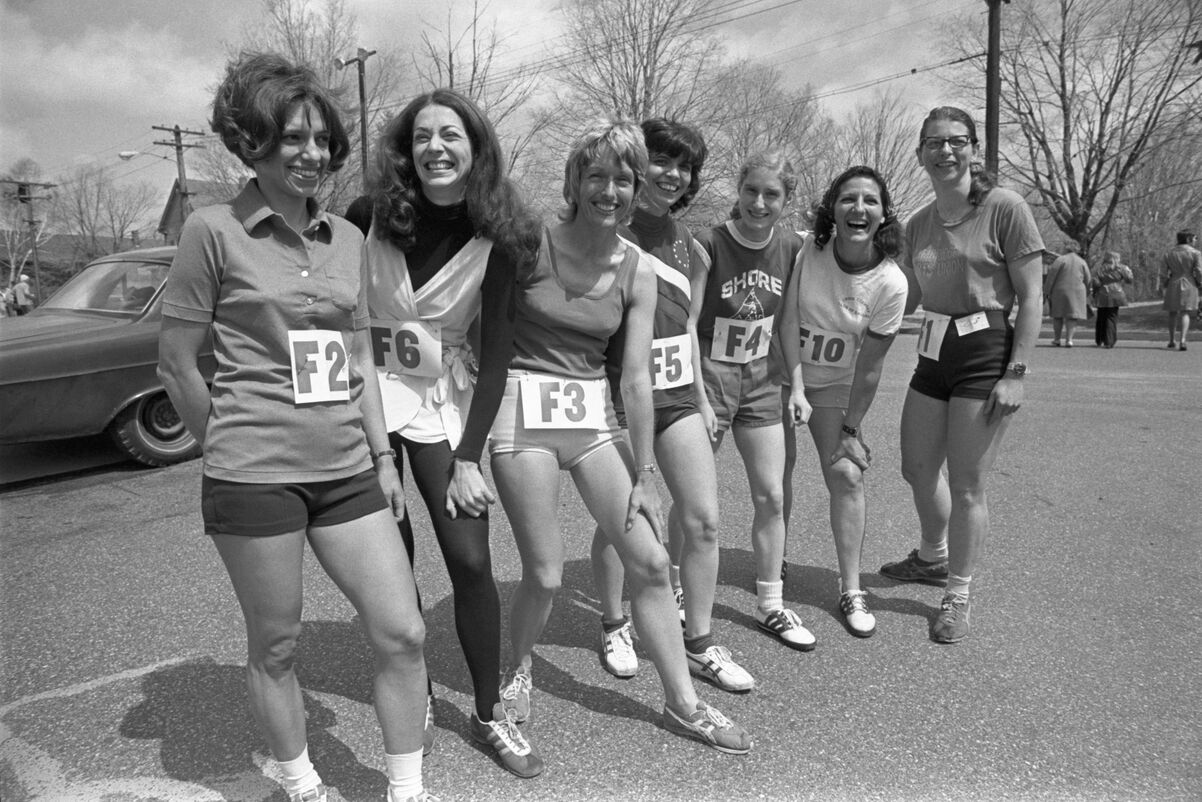The San Francisco Marathon confirmed it will allow trans athletes to compete in accordance with their gender identity.
After the Boston Marathon announced on Monday that transgender runners will be allowed to register in the gender category which most closely corresponds with their identity, a Care2 petition urged San Francisco to clarify its policies. It notes that the Bay Area race “requires people signing up for the S.F. Marathon to select a gender, male or female” on its website.
“We would love to see San Francisco Marathon clarify whether or not it honors gender identity for transgender and genderqueer individuals,” reads the petition, which has been signed by over 8,000 people to date.
In a series of emails to INTO, officials said the race would affirm trans identities.
“The San Francisco Marathon is a gender-inclusive race,” a spokesperson for the San Francisco Marathon said in a brief statement. “We encourage runners to register as the gender with which they identify.”
Trans inclusion in U.S. marathons became a topic of national discussion after a profile in the magazine Canadian Running profiled transgender athletes who had successfully signed up for next Monday’s race in Boston. Officials with the yearly contestthe oldest of its kind in the worldclaimed it had a longstanding policy of allowing trans people to compete with members of their gender.
“We take people at their word,” Boston Athletic Association (BAA) Chief Tom Grilk told National Public Radio. “We register people as they specify themselves to be. Members of the LGBTQ community have had a lot to deal with over the years, and we’d rather not add to that burden.”
Chicago and New York also confirmed they would allow trans people to self-identify their gender.
But the announcements raised concern when the BAA claimed it would require participants in the Boston Marathon to show identification in order to pick up their bib. A 2015 survey published by the National Center for Transgender Equality (NCTE) showed that 71 percent of trans people have not updated their documents to reflect their lived gender identity.
Arli Christian, state policy counsel for NCTE, told INTO an email earlier this week that the process of applying for corrected driver’s’ licenses or state IDs is a major barrier to entry for many trans people, calling it “complicated [and] expensive.”
The standards also vary “from state-to-state,” he claimed.
To update one’s driver’s license in accordance with their gender identity, many states require that an individual first apply for a name change with the Social Security Administration, as well as receive a court order.
Others go above and beyond by forcing applicants to prove their transition, according to NCTE. Kansas requires a “statement from a physician that the applicant has undergone the appropriate clinical treatment,” while Oklahoma mandates “a notarized statement on letterhead from the physician who performed the sex change operation indicating the applicant or licensee has undergone a complete physical sex change.”
But many trans people can’t afford to transition, a pricey process typically costing in the ballpark of $20,000. Others simply don’t want to.Just a third of transgender individuals claim they’ve undergone full gender confirmation surgery.
In states like Alabama, Montana, and South Dakota,two-thirds of the local trans population is, thus, unable to update their documentation.
When asked for clarification on its identification policy, the San Francisco Marathon claimed it would follow similar guidelines to those put in place in Boston. The race requires participants to present a photo ID and a copy of the confirmation email in order to receive a runner’s bib.
“As long as the name on the runner registration matches the name on the photo ID, a runner will be allowed to participate,” officials tell INTO in an email.
This publication further inquired as to how the San Francisco Marathon would handle a case in which the name displayed on an individual’s state ID or driver’s license conflicted with their gender identity. Officials were unable to comment on that scenario.
BAA claimed, however, those incidents would be addressed on a “case-by-case basis.”
“Should such a situation arise, we would make every effort to address it in a manner intended to be fair to all concerned, with a strong emphasis on inclusion,” the organization told NPR.
But trans athlete Chris Mosier claims officials should “have a plan in place” for individuals whose ID doesn’t match their gender identity.
Mosier, who will be representing Team USA in the 2019 World Championship race in Spain, told INTO earlier this week that a lack of policy could lead to anti-trans discrimination, as “most volunteers at packet pickup simply look at the name to make sure it matches.”
“Checking genders on an ID may lead to problems for trans athletes,” he said. “For a variety of reasons, a transgender athlete may not have an identification document that matches their gender identity.”
NCTE added it “does not support any policy that requires an updated gender marker on an ID or record as a prerequisite for participation.”
Although critics of trans inclusion have warned allowing transgender women to register as women would give them a competitive advantage in marathons, experts in LGBTQ health argued those concerns are based on debunked myths. Taking estrogen to reduce levels of testosterone, for instance, may lead to dehydration and fatiguea major obstacle in a 26.2-mile race.
“There’s no physiologic advantage to being assigned male at birth,” Dr. Alex Keuroghlian, who serves as director of education and training programs at the Fenway Institute, told the Associated Press.
The San Francisco Marathon will take place on July 29.
Photo viaBettmann/Getty Images
Help make sure LGBTQ+ stories are being told...
We can't rely on mainstream media to tell our stories. That's why we don't lock our articles behind a paywall. Will you support our mission with a contribution today?
Cancel anytime · Proudly LGBTQ+ owned and operated
Read More in Impact
The Latest on INTO
Subscribe to get a twice-weekly dose of queer news, updates, and insights from the INTO team.
in Your Inbox














